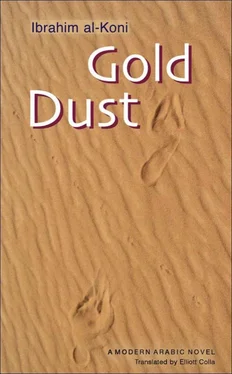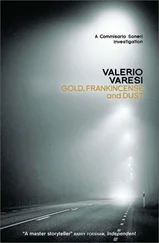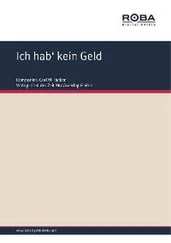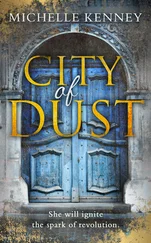My God! Perhaps she truly loved her cousin — and perhaps she had meant to insult Ukhayyad so as to win her divorce papers. This fantastical idea only multiplied Ukhayyad’s distress. It dawned on him that all this time she had hidden the nature of her relationship to Dudu. Why had she not told him the whole story? Why, unless she was concealing some secret? Here was woman, the horrible noose tightening around his neck, strangling his breath. Here also the shadows crept up to swallow the light of day. That night, Ukhayyad wept.
Instead of sleep, he found two burning ribbons of tears pouring down his cheeks. He never thought he was capable of crying like this. A descendent of the great Akhenukhen crying in bed like the weakest woman! During his childhood, Ukhayyad had once fought one of his cohort to see who could hold a glowing coal in the palm of his hand the longest. The stench of burning flesh billowed from his hand, but he never let go. His opponent soon collapsed in pain and threw down his coal with a yelp. But Ukhayyad did not scream or cry, even though he was only nine at the time. Another time, when he was seven, his mother punished him by having their African servant insert hot pepper oil into his nostrils — spoonfuls of the stuff. He first passed out, then stopped breathing. But on that day, he did not cry.
Much later, he had plowed a furrow across the desert hanging from the tail of the piebald, then leaped into a bottomless black pit. He had died and returned to live again — all without tears.
Yet, here he was tonight, unable to stop himself. It was as if the person crying was not him, but someone else — his double — sleeping next to him, defying him. Someone else whose activities and deeds he could watch without being seen. Had this ever happened before to anybody in the desert?
He stole out of bed and left the hut. Outside, the glow of dawn began to split the shadows of the oasis, but the cocks had forgotten to announce the day’s birth, or maybe they had meant to conceal their secret. Only a band of crickets remained, carrying on with their late-night songs.
The piebald had also spent the night awake. Ukhayyad found him standing erect with his long frame, his head facing east. He was miserable and anxious as he silently watched the dawn’s birth. Meanwhile, the plow camel kneeled on the other side of the hut. It sat beside a thick, stooped palm, stupidly, mechanically chewing its cud. At this early hour, the melancholic piebald seemed saint-like in his pose. The other camel, whose mind remained carefree and vacant, seemed brutish and stupid in comparison. How appalling living creatures seem when their hearts are so free of worry or concern! Only sadness can implant the glow of divinity in a heart! Did this apply to people as well? Sheikh Musa always said that God loves only those worshippers who have experienced pain and suffering. Indeed, He inflicts misery only upon those whom He loves! The Sufi sheikhs in the oasis also often talked about something like this.
In the corner of the hut, he stole three handfuls of barley and snatched up his rifle. He attached the bridle through the Mahri’s nose and led him along the road to the vineyard spring.
On the road, Ukhayyad found himself repeating a refrain as if he were singing, “Patience is prayer. Patience is worship. Patience is life itself.” He took comfort repeating the words into the piebald’s ears, telling himself that the song was meant for the suffering Mahri. Inside he knew that this time the words were addressed to himself. That other person who had wept tonight, that other he had discovered living in his body — he was the one chanting the incantation. This other would be the one who would transform his sense of unrest into living deed. Since last night, this other had become his hand, his tongue, his eye. Those eyes with which he had cried — they belonged to this other. How long had this other lived inside his breast — since birth? Why had he woken up only yesterday?
Ukhayyad crossed through the palm forests and drew up beside the southern sand dune. He forced the camel to kneel, then unrolled a tatter of burlap cloth. He pulled out the packet of barley and spread it before the camel. But the piebald turned his nose up with disdain and stared at the desolate horizon.
The first fiery thread of the sun’s rays now burst forth. He sat on his toes across from the camel. Leaning on his rifle, Ukhayyad stared intensely at the piebald.
And then, though he did not know how, he raised the barrel of the rifle and pointed it directly at his companion. He stood up slowly, as if being plucked up by strings, and drew the gun barrel toward the camel’s head. He took a step forward, then another, until the rifle mouth pressed against the camel’s forehead. He clutched the weapon with both hands, and placed it directly between the camel’s eyes. Ukhayyad’s hands were steady and his eyes shone with resolute determination and something dark. The piebald also surrendered to the moment. Their eyes met. There was no astonishment in the camel’s eyes. On the contrary, the camel seemed to bless what was happening. “Pull the trigger,” his eyes seemed to encourage Ukhayyad. Those deep eyes were as pure as the water in the vineyard spring, and now they were telling him: “Put out this fire, if you wish to live apart. The shadows that hang about us cannot be worse than the fire of Asyar. They cannot match the cruelty of the road to Awal. Put out this fire inside me!”
Their eyes locked for what seemed like forever. Finally, Ukhayyad’s resolve broke, and his hand began to tremble. He shoved the rifle barrel into the sand beside the camel’s folded leg and trembled there for a few moments. Then he felt the water begin to roil down his cheeks again. His breast seethed and flared with anger and rage. How would he put out the fire?
He began to bash the rifle butt against his head until his turban fell off. Blow after blow, and the blood began to pour, splattering on his hands, across the sand, and across the burlap cloth and into the barley. Blood splattered over the piebald’s face as he nervously watched the burst of madness. With each blow, the distress in his eyes developed into fear. Perhaps this was because he did not know what madness was. Perhaps it was because he believed that man alone was blessed with the gift of reason and that he had no right to lose it and behave like a beast. Ukhayyad had indeed now lost his mind. Who was this person then? What would he do to himself? How far would he go?
The camel suddenly opened his mouth and bellowed, “Aw-a-a-a-a-a-a.”
The open desert quickly swallowed the pained cry and Ukhayyad stopped and fell on the sand.
It was now late afternoon.
He found himself in a fever, drenched in sweat and blood. He did not know when or how he had passed out. The pain of the gashes split his head. The time had come for the pains of the body to vanquish those of the heart. If only there was a way for the pains of the body to absorb these others — then no one would ever feel any pain. As soon as he came to and remembered what had happened, his headache dissolved — and with it, the sufferings of his body. Heartache had consumed all other pain.
Ukhayyad went and washed in the vineyard spring. He concealed his wounds beneath his veil and rested in the shady thicket of palms that surrounded the pool of water. He drank, and drenched his chest, clothes, and head with water. He eventually got up and headed for the oasis village.
He found the man he sought sitting in the circle of sheikhs. The cadi was taking refuge from the scorching afternoon sun behind the courtyard wall and was absorbed in fighting off flies with a palm frond swatter. Ukhayyad asked to speak to the man alone, and then demanded a writ of divorce. The cadi attempted to dissuade him, and tried to postpone drafting the document. The man said, “Though frowned upon, a divorce was permitted by God’s law. There is nothing easier.” It was better — though harder, he said — to restrain one’s impulses than regret one’s actions later. But, confronted with Ukhayyad’s determination, the cadi abandoned his sermon and resorted to a trick that he thought would delay the process and muddle Ukhayyad’s passion: he demanded that a witness be present. Ukhayyad went out and grabbed the first peasant he met in the square, dragging him back to the cadi. “When Satan sets his heart on something, he makes it happen,” the cadi sighed. “When he wants to push someone over a cliff, he removes all the obstacles that stand in his way. May God prevail!” He then gave the ill-omened document to Ukhayyad, who then folded it, pressed it into his pocket, and departed for Danbaba.
Читать дальше












